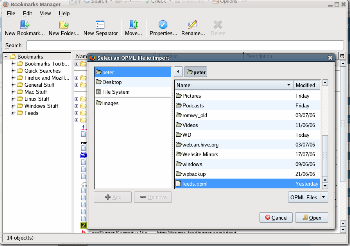It’s here! Yes, it’s that elusive podcasting project I was talking about. In fact, Chris van Patten, who commented on that post – well, you could have found out by clicking his name (he put the PodDev website as his link on the comments form). Ah well, so much for the hush-up.
Anyway, the first episode of PodDev is now online! You can listen to it now on Odeo, subscribe to the feed via RSS, read the transcript (if you’re bandwidth isn’t quite broad enough or you want to read along) or subscribe via iTunes.
Listen now using this Odeo Flash player:
Thanks to my co-hosts Chris Van Patten, Jacob Peddicord and Huw Leslie (Huw will be joining us hopefully next episode, he’s on holiday at the moment). Big thanks also to Paul Colton of the Aptana project who agreed to be interviewed for PodDev’s first episode.
If you’ve listened to PodDev and like it, we’d really appreciate a link back to poddev.comitar.com. Also, we’ve got some pre-made link buttons for you, if you’re interested.
In PodDev’s maiden voyage, Jacob takes a look at whether Leopard really is a major upgrade after its showcase at the WWDC, I look at Intel’s release of FOSS graphics drivers and a take a brief dip into Java and Chris gets a three-question interview with John Biggs of CrunchGear. Also, all three of us talk to Paul about Aptana, XAMLON, AFLAX and how he came back to doing JavaScript, Java and Web 2.0 work from a lot of XAML and .NET stuff.
I really enjoyed doing this podcast and I’m looking forward to episode 2 in a couple of weeks! Digg the podcast below.


